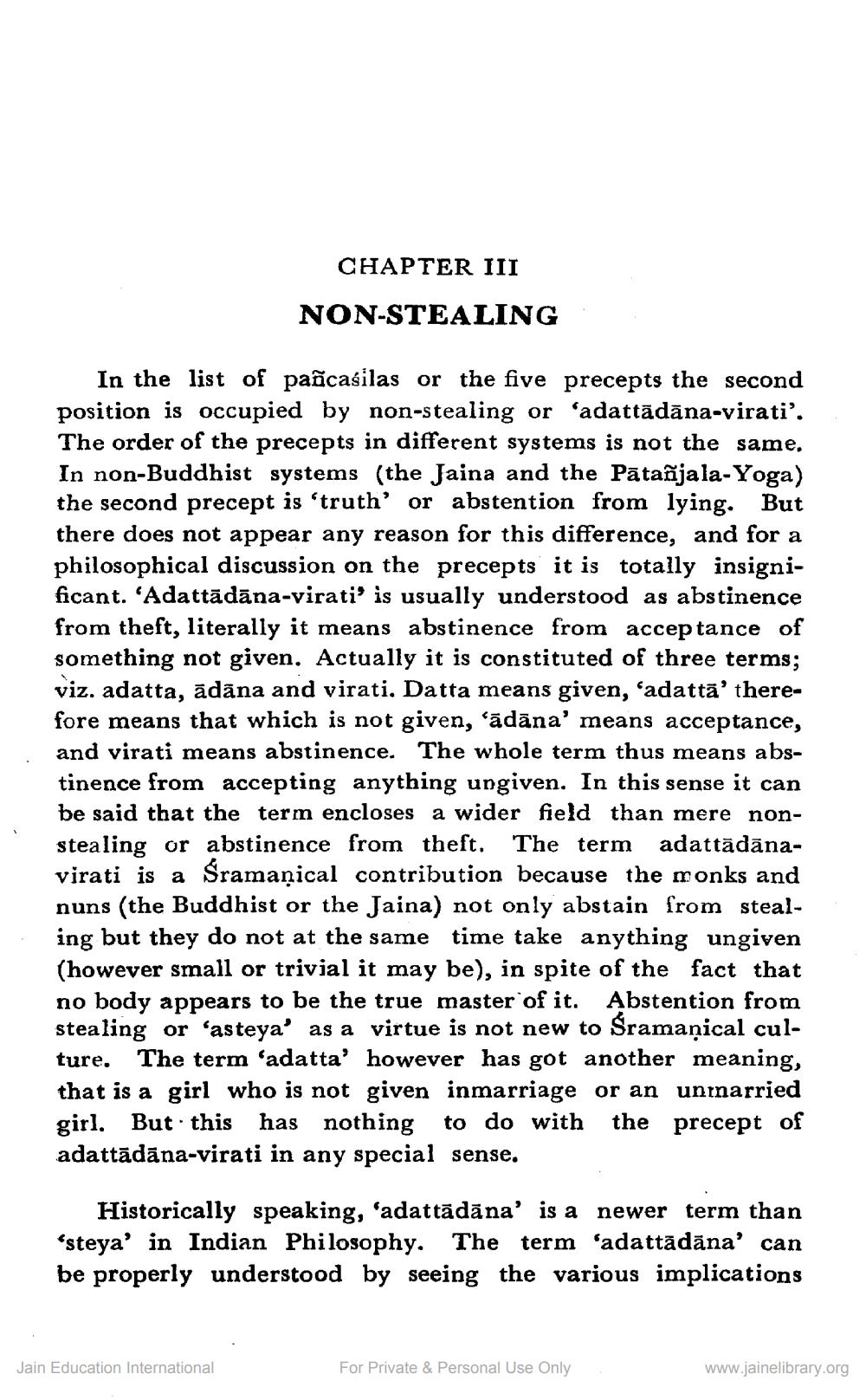________________
CHAPTER III NON-STEALING
In the list of pañcasilas or the five precepts the second position is occupied by non-stealing or 'adattādāna-virati'. The order of the precepts in different systems is not the same. In non-Buddhist systems (the Jaina and the Pātañjala-Yoga) the second precept is 'truth' or abstention from lying. But there does not appear any reason for this difference, and for a philosophical discussion on the precepts it is totally insignificant. ‘Adattādāna-virati' is usually understood as abstinence from theft, literally it means abstinence from acceptance of something not given. Actually it is constituted of three terms; viz. adatta, ādāna and virati. Datta means given, 'adattā' therefore means that which is not given, 'ādāna' means acceptance, and virati means abstinence. The whole term thus means abstinence from accepting anything ungiven. In this sense it can be said that the term encloses a wider field than mere nonstealing or abstinence from theft. The term adattādānavirati is a Sramanical contribution because the monks and nuns (the Buddhist or the Jaina) not only abstain from stealing but they do not at the same time take anything ungiven (however small or trivial it may be), in spite of the fact that no body appears to be the true master of it. Abstention from stealing or 'asteya' as a virtue is not new to Sramaņical culture. The term 'adatta' however has got another meaning, that is a girl who is not given inmarriage or an uninarried girl. But this has nothing to do with the precept of adattādāna-virati in any special sense.
Historically speaking, 'adattādāna' is a newer term than 'steya' in Indian Philosophy. The term 'adattādāna' can be properly understood by seeing the various implications
Jain Education International
For Private & Personal Use Only
www.jainelibrary.org




